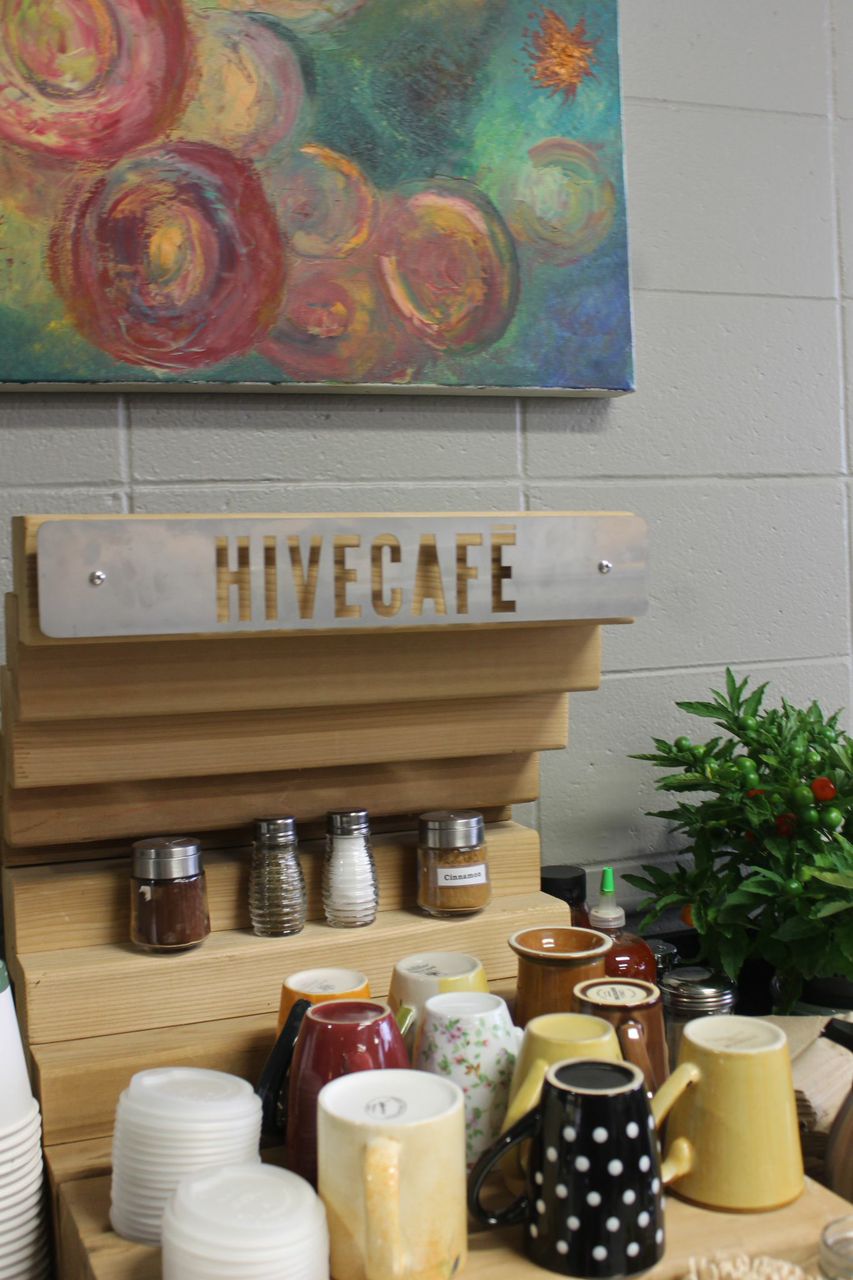Food co-op welcomes patrons at second location.
The buzz about the Hive has been circulating through the Loyola Campus for years. At long last, the Concordia co-op opened for business yesterday, Monday Sept. 29, on the second floor of the Student Center (SC) building.
The opening was an informal affair, with doors opening at 10 a.m. and staff welcomingly ushering in their eager new customers with free coffee and an expansive menu, which highlights organic and local fare.
“Today was just a friendly little meet and greet,” said Fiona Keats, the coordinator at Loyola campus’ Hive. “In the fall we hope to have a big first Hive bash.”
A large part of the purpose of Monday’s humble event was to encourage member sign-up. As a co-op, the organization runs on a volunteer basis largely supported by the Concordia student body. Membership costs $5, lasts a lifetime, and garners you 10 per cent off of everything at the café. Members are encouraged to offer suggestions and get involved as much as they can or want to in order to keep the Hive running.
“Not everything is 100 per cent sustainable yet,” said Keats. “But that’s the ultimate mission.”
For now, they do the best they can, until more opportunities become available from community sources.
“Some stuff is local, some is organic,” she said. “We try to, in everything we buy, have at least one element of sustainability in it.”
At the very least, they’re transparent. Information on where each specific menu item comes from is designated on the wall by the cash register.
For now, that includes loose-leaf teas from Concordia’s City Farm School, fresh sprout salad from the Concordia Greenhouse, local Quebec apples, and sandwiches from Côte-des-Neiges—Notre-Dame-de-Grâce’s Café Zephyr, which has a farm-to-table model.
Also on the menu are gourmet scones, fresh-baked muffins, an incredibly hearty vegan chili, and grilled cheese on organic sprout bread.
The Hive also sponsors a lunchtime program, where they offer free vegetarian lunches (while supplies last) to anybody who visits.
In both cases, only the continued support of volunteers and members limits costs and allows them to affordably sustain such programs.
Their sprawling space has an abundance of room to sit and eat, or just hang out — stop by the SC building and see for yourself.
